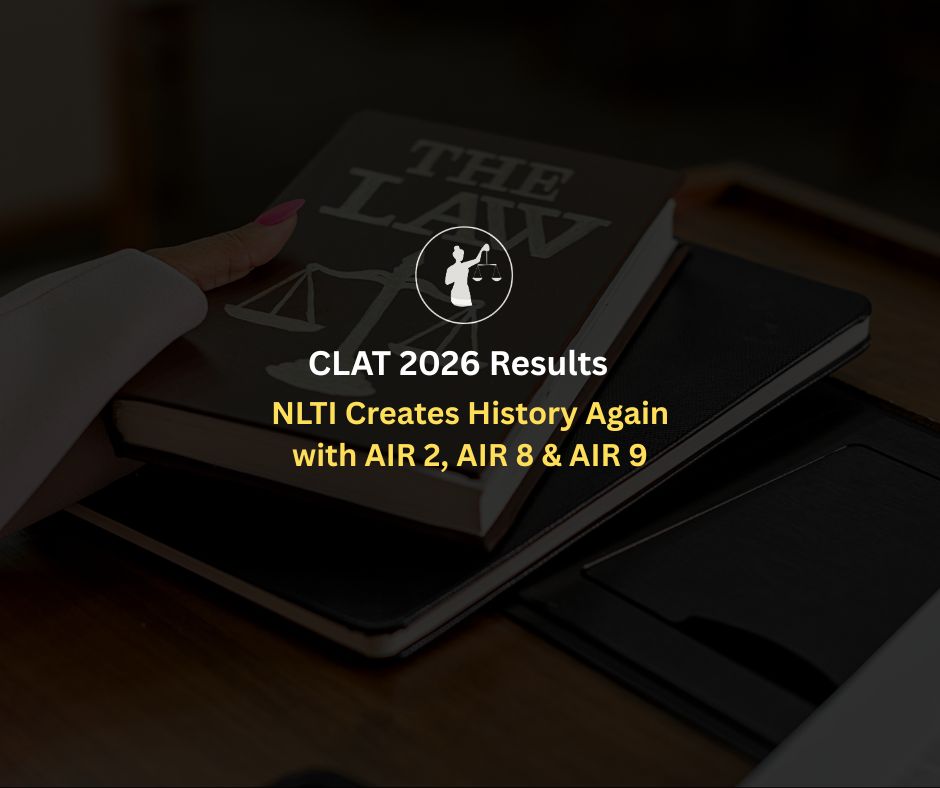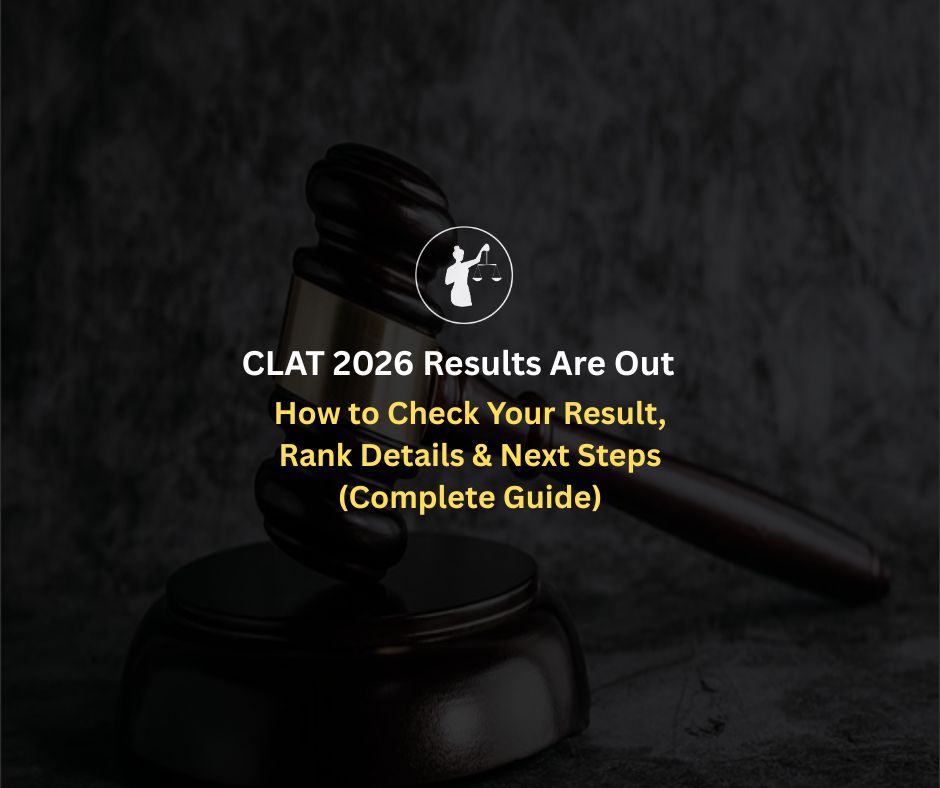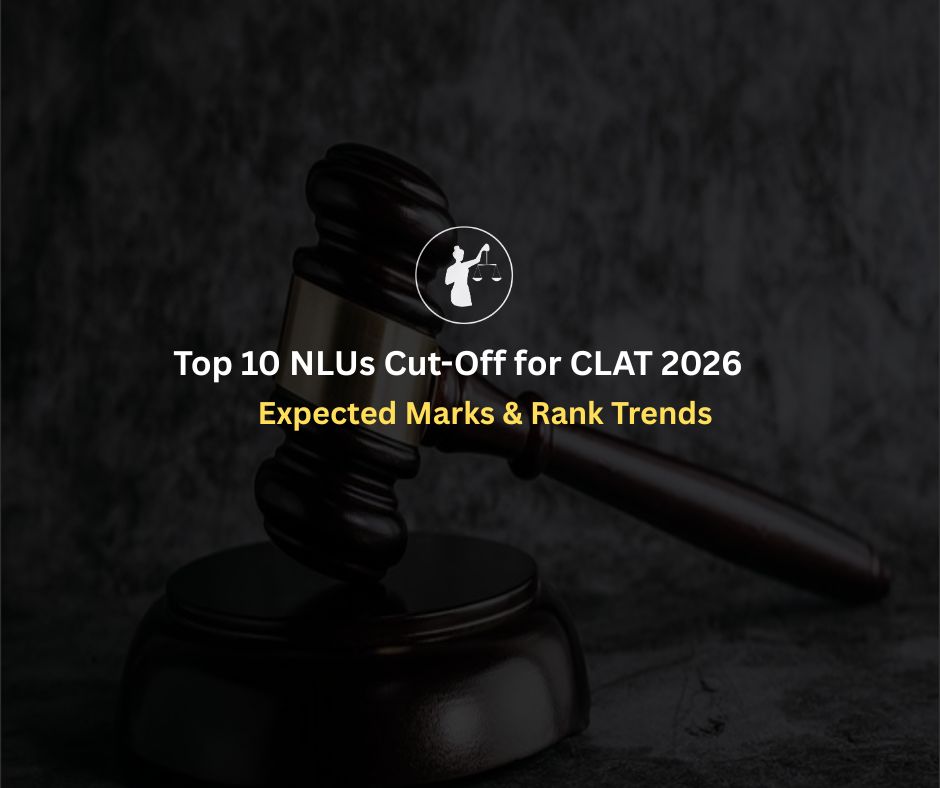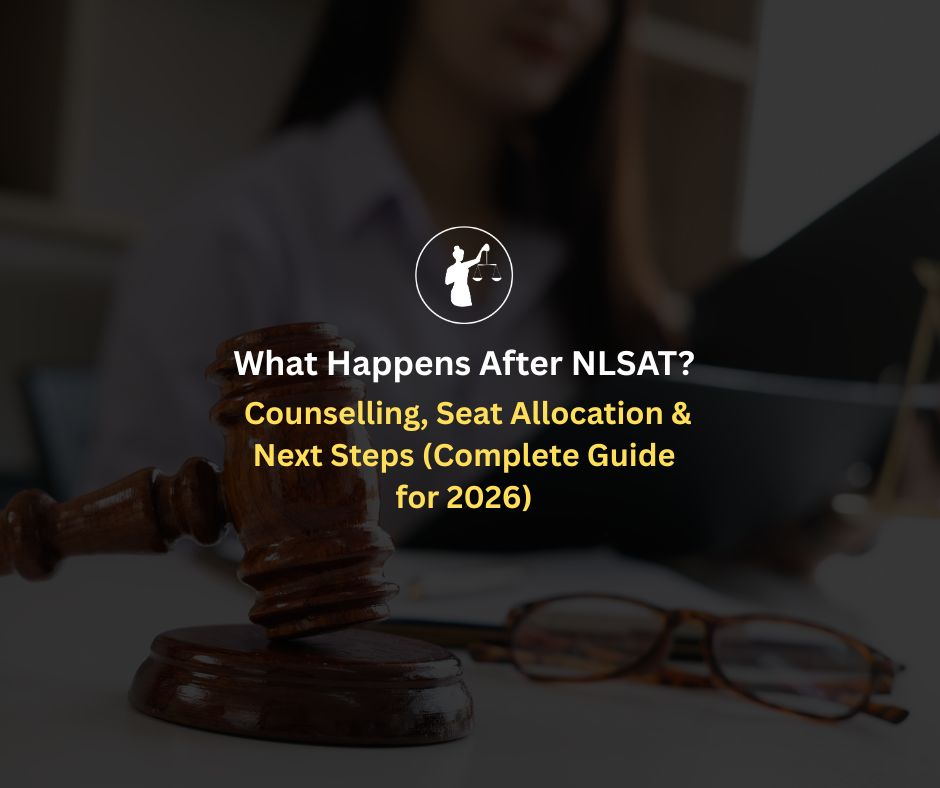When you think about a successful law career, the first step is clear crack CLAT 2026, the gateway to some of India’s top law colleges.
While government-run NLUs often dominate the conversation, a new trend is taking shape: a growing number of students are now exploring top private law colleges that accept CLAT scores. And for good reason — modern infrastructure, expert faculty, diverse peer groups, and robust placement opportunities are making these institutions highly sought after.
( Note: Scroll Down and fill up the form for Free Mock Questions and Weekly Study Guides )
But here’s the catch — with so many options available, how do you choose the right one? And more importantly, how do you make sure you’re fully prepared to get in?
That’s where NLTI (National Law Training Institute) steps in — your trusted partner for CLAT 2026 preparation. Whether you're targeting a national law university or a reputed private college, NLTI is here to guide you with expert mentorship, smart strategy, and full-syllabus support.
In this blog, we’ll explore the top private law colleges in India accepting CLAT 2026 scores and how you can plan your way in with the right prep strategy from NLTI.
The Common Law Admission Test (CLAT) 2026 is more than just an exam — it’s your launchpad into India’s top law schools, including both NLUs and elite private law colleges.
CLAT 2026 will be a national-level entrance test for undergraduate (UG) and postgraduate (PG) law programs.
It’s conducted by the Consortium of NLUs, and this year, it’s expected to be even more competitive with thousands of aspirants aiming for limited seats.
Here's a quick overview:
Expected Date:
December 2025
Subjects Covered:
English Language, Current Affairs (including General Knowledge), Legal Reasoning, Logical Reasoning, and Quantitative Techniques
Duration:
2 hours
Marking Scheme:
+1 for correct answers, -0.25 for wrong ones
But scoring high on CLAT isn’t just about knowing the syllabus — it’s about mastering the strategy, managing time, and practicing smartly.
That’s where NLTI makes the difference. With experienced mentors, personalized study plans, and in-depth mocks tailored to the CLAT 2026 pattern, NLTI helps you gain not just clarity — but a competitive edge.
Whether you're eyeing a top private college or aiming to explore all options through CLAT, preparing the right way is key and NLTI is here to make that journey smarter and smoother.
While the National Law Universities (NLUs) are often seen as the gold standard for legal education in India, they are not the only quality institutions offering rigorous law programs.
In recent years, several private law colleges have emerged as excellent alternatives, offering a combination of academic depth, real-world exposure, and industry-relevant learning environments.
With thousands of students appearing for CLAT 2026, the competition for NLU seats is fierce.
This has led many aspirants to look beyond public institutions, toward private law colleges that accept CLAT scores and offer equally strong, and sometimes even more versatile, legal education programs.
Many private law schools feature globally benchmarked curricula, tie-ups with international universities, and faculty from both academic and professional backgrounds.
Their campus infrastructure, moot court facilities, legal aid clinics, and placement support systems are on par with — and sometimes exceed — those of traditional public universities.
Choosing a private law college doesn't mean settling for less — it means broadening your horizons.
At NLTI, we guide students to make informed decisions not only about their preparation strategy but also about the right institutions based on their career goals, budget, and aspirations.
There are a growing number of private law colleges that accept CLAT scores for their five-year integrated law programs like BA LL.B and BBA LL.B. These institutions are known for their holistic education models, interdisciplinary approach, and strong placement records.
Here are some of the leading private law colleges in India that accept CLAT 2026 scores:
These colleges provide unique academic structures such as international exchange programs, specialized research centers, and advanced legal writing modules.
They also offer significant career opportunities in corporate law firms, litigation, legal consultancy, and even non-traditional fields like legal journalism and policy-making.
At NLTI, we help students align their CLAT 2026 performance with the eligibility criteria and expectations of these top institutions, ensuring that no opportunity is missed.
Applying to private law colleges that accept CLAT scores is different from the centralized counselling process followed by the NLUs.
Each private college usually has its own admission portal and individual deadlines, making it important for students to be proactive and organized.
Step 1: Appear for CLAT 2026
Secure a competitive score that aligns with the cutoffs or benchmarks of your target colleges.
Step 2: Track College Announcements
Regularly check the websites of private law colleges to stay updated on their admission timelines, eligibility criteria, and application procedures.
Step 3: Submit Separate Applications
You’ll need to apply individually to each college, even if they accept CLAT scores. Some may require additional materials like a Statement of Purpose (SOP), Letters of Recommendation (LORs), or even personal interviews.
Step 4: Appear for Further Rounds
Depending on the college, there may be further evaluation before a final offer is made.
This process can feel overwhelming, especially when you're simultaneously preparing for the exam itself.
That’s why NLTI not only focuses on academic coaching for CLAT 2026, but also provides admission support and guidance.
From tracking application windows to helping you draft an impressive SOP, we ensure you’re never alone in the application journey.
Yes. Many private law colleges that accept CLAT scores are accredited by the Bar Council of India and have tie-ups with international universities.
Their curricula, faculty expertise, and placement records are comparable to — and sometimes exceed — those of NLUs.
While CLAT 2026 scores are accepted, most private colleges require a separate application through their own admission portals.
Some may also have interviews, SOP submissions, or merit lists based on CLAT performance.
In general, yes — private colleges tend to have higher tuition fees. However, many offer scholarships, financial aid, and EMI options.
It’s important to assess the return on investment in terms of placements, exposure, and skill development.
NLTI (National Law Training Institute) offers expert-led CLAT 2026 preparation, regular mock tests, and personalized mentorship.
We also help students navigate the law college application process — from SOP writing to tracking deadlines — so they don’t miss key opportunities.
Yes. NLTI students have gone on to join premier private institutions like JGLS, UPES, and Nirma.
Our holistic approach focuses not just on test prep, but also on building the confidence and clarity needed to excel in interviews, legal reasoning, and academic life after CLAT.
Choosing the right law college is about more than rankings — it’s about finding a place that aligns with your goals, learning style, and vision for your future.
CLAT 2026 is your gateway, but success lies in how strategically you prepare for it and what choices you make along the way.
While NLUs continue to be aspirational for many, private law colleges have opened up incredible opportunities for students seeking flexibility, exposure, and a future-focused legal education.
These institutions are no longer second-tier — they are competitive, dynamic, and globally connected.
And at the core of your journey should be a support system that truly understands your aspirations. That’s where NLTI comes in. We go beyond classroom coaching to offer mentorship, strategy, and complete support for your CLAT 2026 journey — from exam prep to college admissions.
Let NLTI help you find your best-fit law college and equip you with everything you need to get ther





